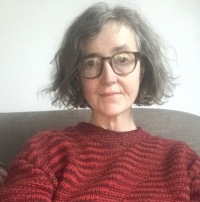My Approach
Life can feel complicated, and at times, overwhelming. You might notice patterns that hold you back — whether in your relationships, your career, or in how you view yourself. Therapy offers a safe space to explore these feelings, helping you understand where they come from and how to make changes that last.
In our work together, I’ll support you in slowing down and noticing what’s happening beneath the surface. We’ll uncover the deeper influences — often rooted in past experiences — that shape the way you think, feel, and act today. This isn’t about fixing things overnight, but creating a space where you can gain clarity, self-compassion, and a sense of direction.
Through this process, my goal is to help you feel more in control, more resilient, and more connected to yourself and others.
About Me
Sometimes life looks ‘fine’ on the outside — but inside, things feel flat, stuck, or off-track. You might feel disconnected from yourself, unsure what’s really wrong, or simply exhausted by trying to keep it all going. I offer a warm, steady space where we can slow things down and make sense of what’s going on beneath the surface.
Before becoming a therapist, I worked in creative and cultural roles in the UK and abroad. Those experiences deepened my interest in how we manage change, pressure, and identity — and how easy it is to lose our footing along the way. That insight now informs my work: supporting people through life’s turning points, whether clear-cut or quietly unfolding.
I work with
- Individuals
- Private healthcare referrals
Special Interests
Like all UKCP registered psychotherapists and psychotherapeutic counsellors I can work with a wide range of issues, but here are some areas in which I have a special interest or additional experience.
Types of Therapies Offered
- Psychodynamic Psychotherapist
What I can help with
Types of sessions
- Face to Face - Long Term
- Face to Face - Short Term
- Online Therapy
- Telephone Therapy
London Office
1B - Building 7 Maidstone Buildings Mews72-76 Borough High Street
London SE1 1GD
United Kingdom (UK)
View Map
UKCP College
- Council for Psychoanalysis and Jungian Analysis College (CPJAC)


